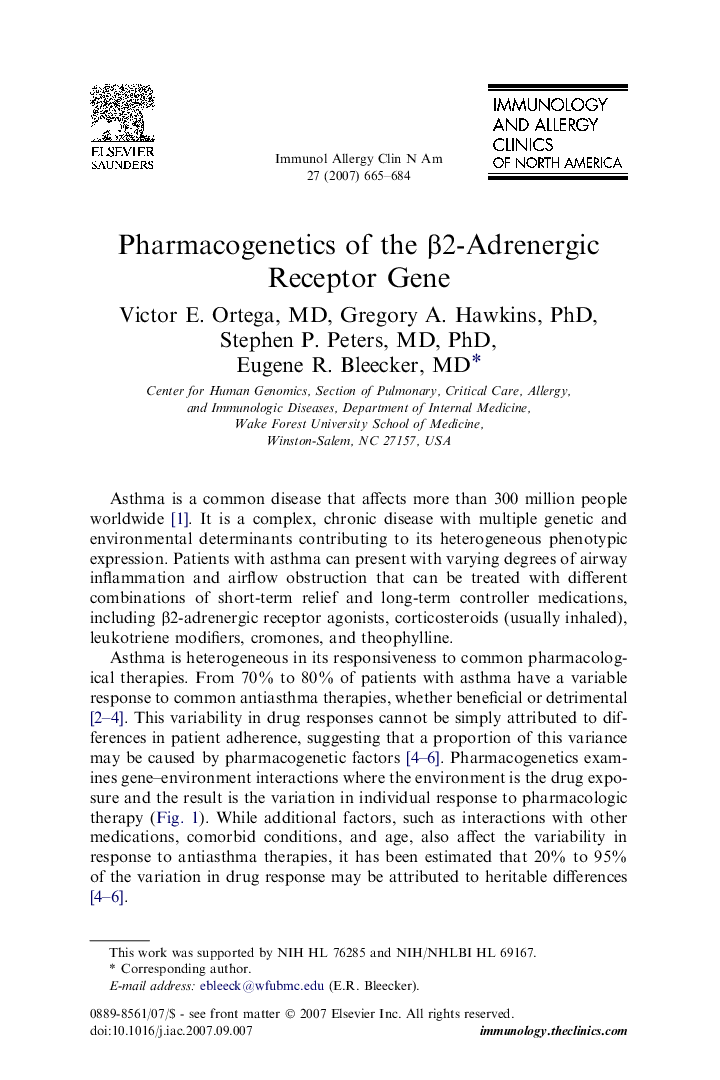| Article ID | Journal | Published Year | Pages | File Type |
|---|---|---|---|---|
| 3355034 | Immunology and Allergy Clinics of North America | 2007 | 20 Pages |
Abstract
Asthma is a complex genetic disease with multiple genetic and environmental determinants contributing to the observed variability in response to common antiasthma therapies. One focus of asthma pharmacogenetic research has been the β2-adrenergic receptor gene (ADRβ2) and its effect on individual responses to beta agonist therapy. Knowledge about the effects of ADRβ2 variation on therapeutic responses is evolving and should not alter current Asthma Guideline approaches, which consist of the use of short-acting beta agonists (SABAs) for as-needed symptom-based therapy and the use of a regular long-acting beta agonist (LABA) in combination with inhaled corticosteroid therapy for those asthmatics whose symptoms are not controlled by inhaled corticosteroid alone. These approaches are based upon studies showing a consistent pharmacogenetic response to regular use of SABAs and less consistent findings in studies evaluating LABAs. The emerging pharmacogenetic studies are provocative and should lead to functional studies. Meanwhile, the conflicting data concerning LABAs may be caused by such factors as small sample sizes of study populations and differences in experimental design.
Related Topics
Health Sciences
Medicine and Dentistry
Immunology, Allergology and Rheumatology
Authors
Victor E. MD, Gregory A. PhD, Stephen P. MD, PhD, Eugene R. MD,
